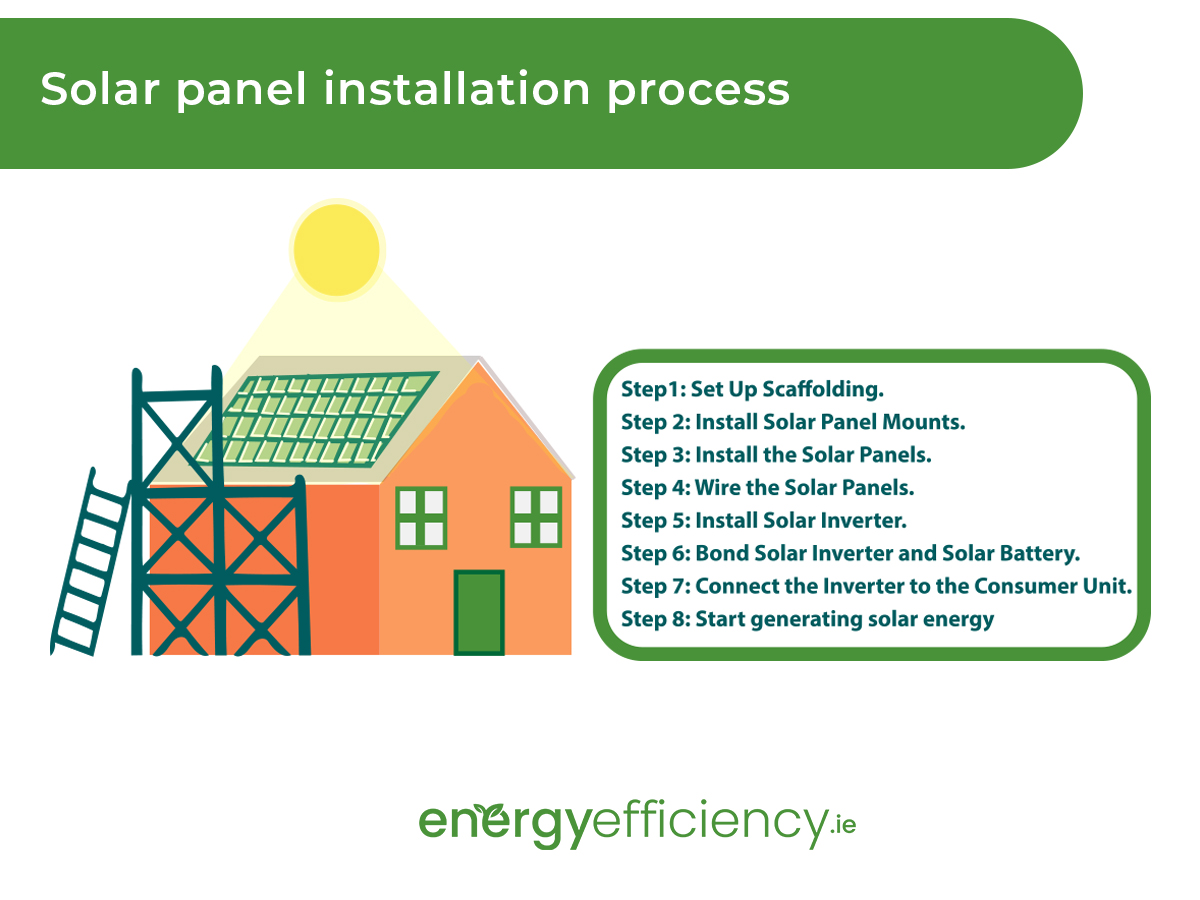Solar panels are being installed in their thousands each year across Ireland, as homeowners and businesses use the sun’s energy to save hundreds of euros on their annual electricity bills.
Many people are now considering solar energy as a viable option for their home, but they may have queries about prices, grants or how the technology actually works.
Read on to find out more about solar panels in Ireland, or speak to Energy Efficiency today to discover how much you could save!
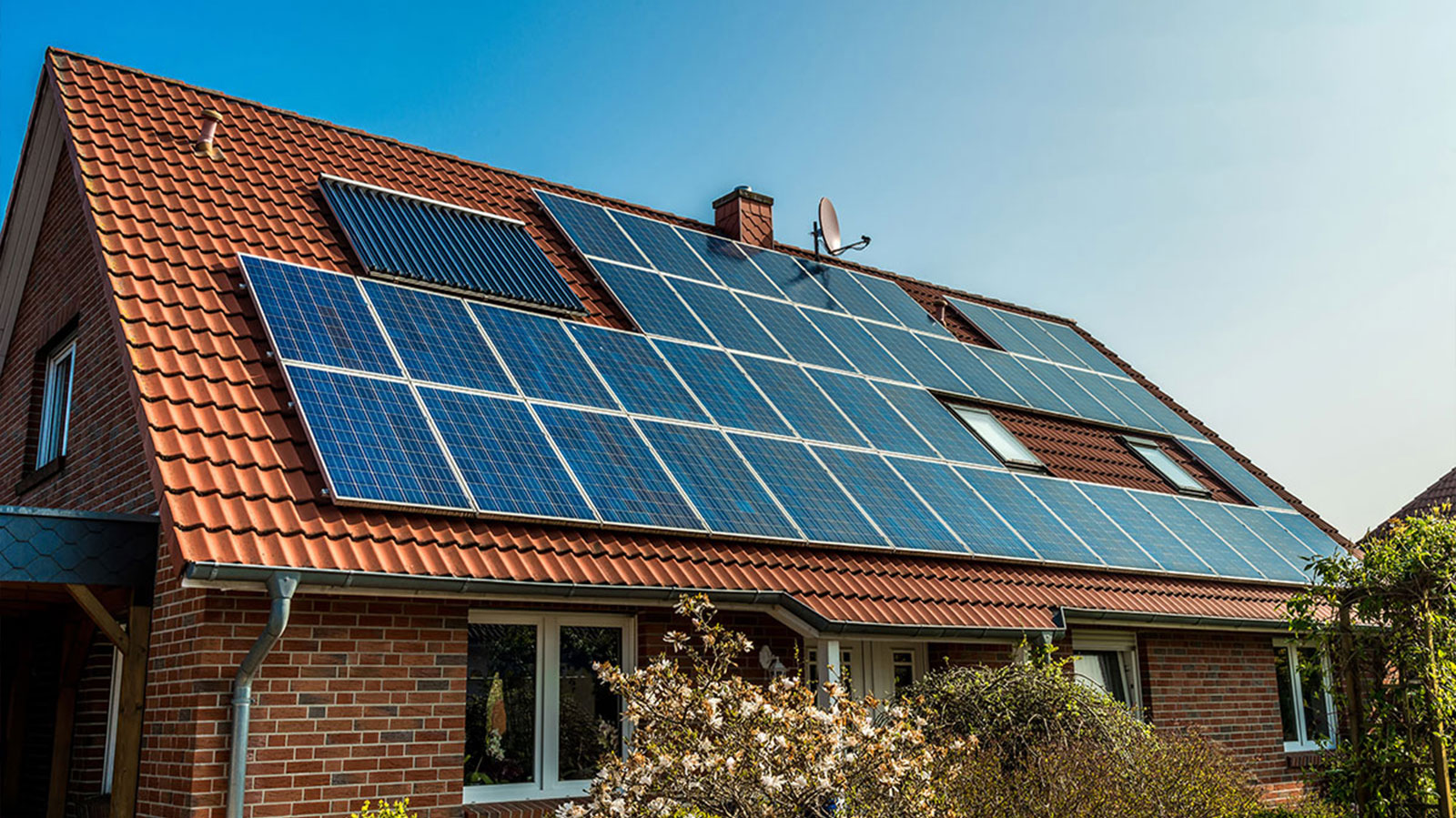
Table of Content
What are solar panels?
Solar PV panels, usually installed on rooftops, convert sunlight into electricity which can power home appliances, heat water, and be stored in batteries for future use.
There are two main types of solar panels: solar photovoltaic (PV) and solar thermal. Solar PV panels, which generate electricity, are much more commonly installed in Ireland.
Solar panels reduce annual energy bills by hundreds of euros each year, and they pay for themselves over time – with homeowners usually seeing a return on their investment in less than 8 years.
Solar thermal panels are also sometimes installed by Irish homeowners. While thermal solar panels can’t generate free electricity, they do heat water and are highly efficient.
How much do Solar Panels cost in Ireland?
Solar panels typically cost between €4,000 and €16,000 for homes in Ireland, with most homeowners paying less than €10,000.
In 2024, the Sustainable Energy Authority of Ireland (SEAI) offers a solar panel grant to homeowners of up to €2,100.
Installation costs will depend on a number of factors, including how many panels you need to meet your needs.
If you want to learn more about how much you will pay for solar panels for your home, check out our detailed guide to the cost of solar panels in Ireland, or our handy solar panel calculator.
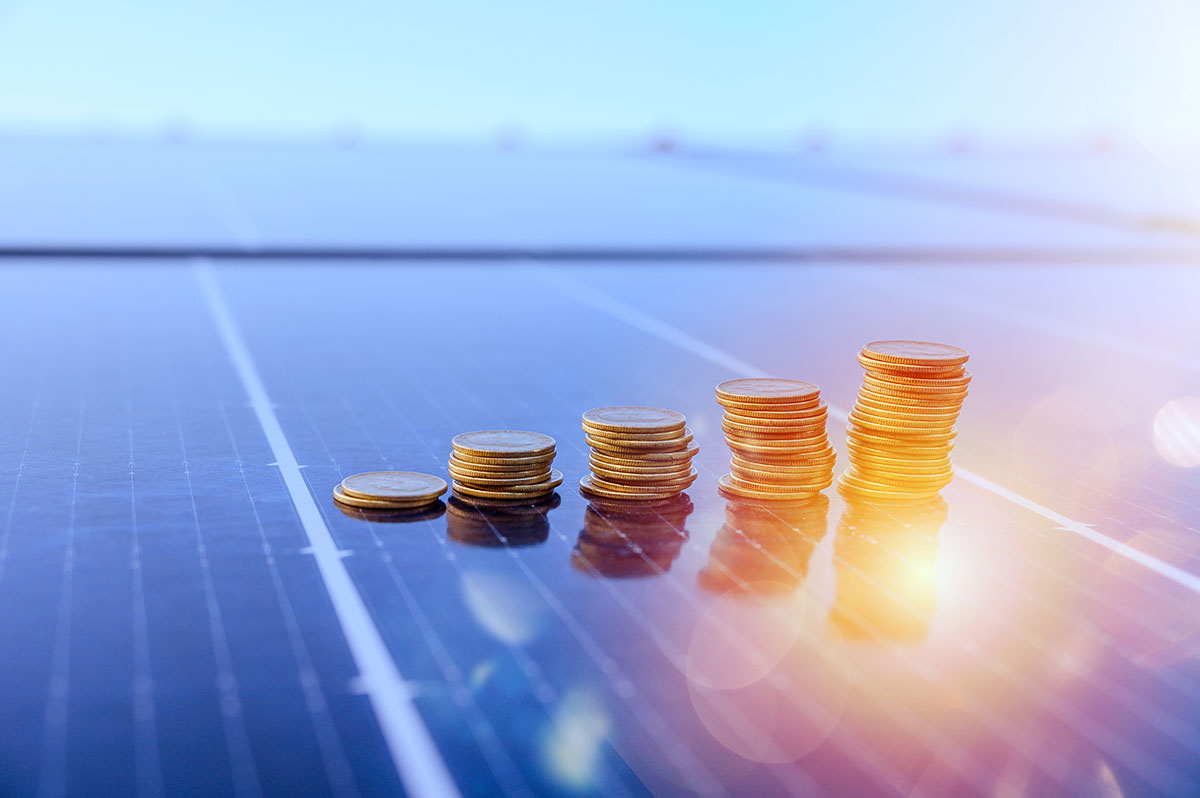
Solar Batteries for Irish Homes
Many people who install PV panels will choose to get a solar battery, which could add up to €4,000 to the overall installation costs.
For most people, however, a standard 5kWh battery would suffice, costing in the region of €2,500. This could save you hundreds of euros per year by maximising usage and reducing the amount of electricity not consumed.
Homeowners in Ireland can also take advantage of cheaper nighttime electricity rates by utilising electricity stored in the battery from the daytime.
Solar Panels Grants in Ireland
Solar panel grants of up to €2,100 are available for Irish homeowners. These grants, provided by the Sustainable Energy Authority of Ireland (SEAI), are open to all homeowners where their homes were built and occupied before 2021.
The SEAI currently offers homeowners €800 per kW of solar PV panels up to 2kW, and a further €300 per kW between 2kW and 4kW.
There are also solar panel grants available for businesses and farms, and our in-depth solar panels grants page explores everything in more detail.
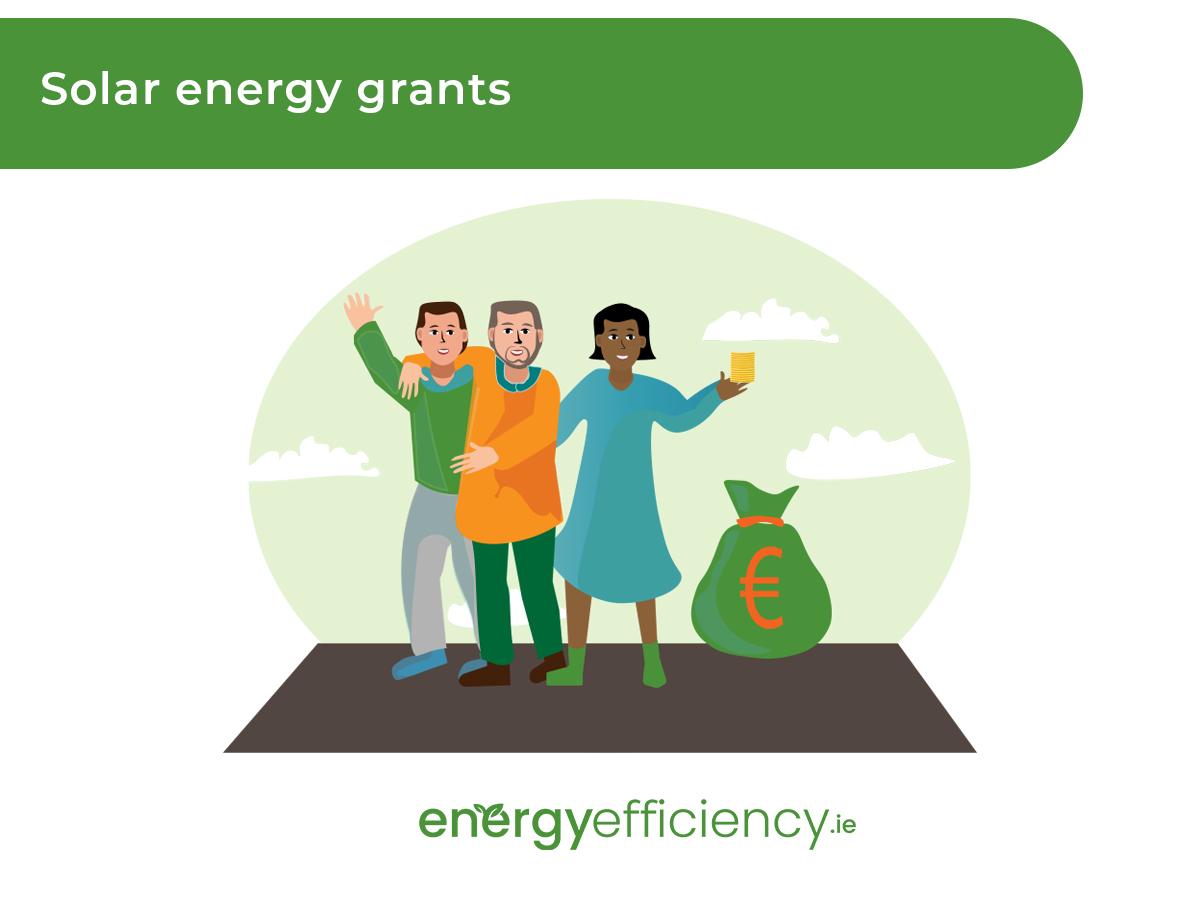
| Solar System Size | Grant Available |
| 2kWp | €1,600 |
| 2.5kWp | €1,725 |
| 3kWp | €1,850 |
| 4kWp + | €2,100 (maximum grant for homeowners) |
Do solar panels work well in Ireland?
Ireland has more than enough sunlight for solar panels to work well. We get between 1,100 and 1,600 hours of sunshine per year on average.
Ireland’s sunniest months are May and June when we get between 5 and 6.5 hours of sunshine per day, and the sunniest region is (unsurprisingly) the south-east, according to Met Éireann.
Regardless of location, solar panels on Irish rooftops can generate more than enough electricity to justify their installation.
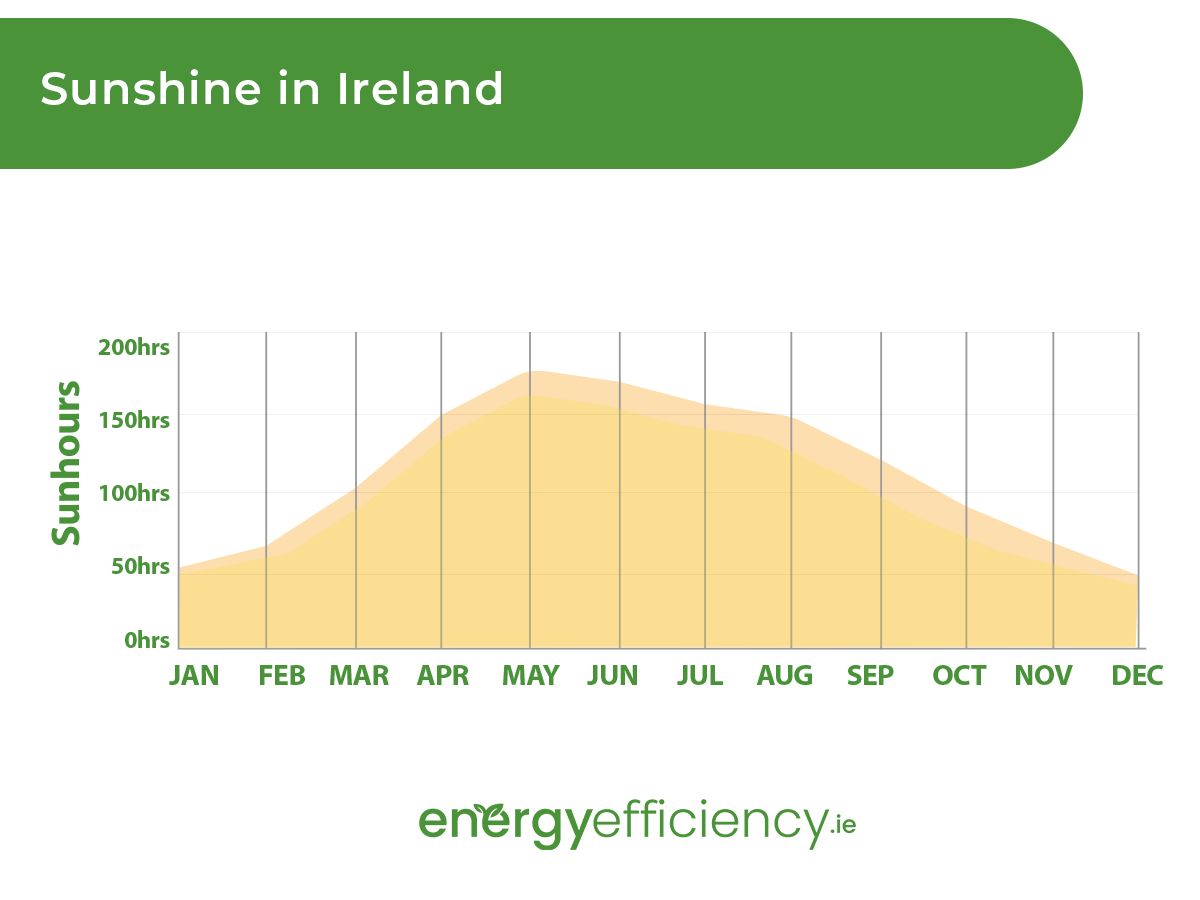
Benefits of Solar PV Panels for Irish homes
While solar thermal panels heat water, solar PV systems generate electricity. People in Ireland are installing PV solar panels on their homes for five main reasons. We explore these reasons further in our advantages of solar energy page.
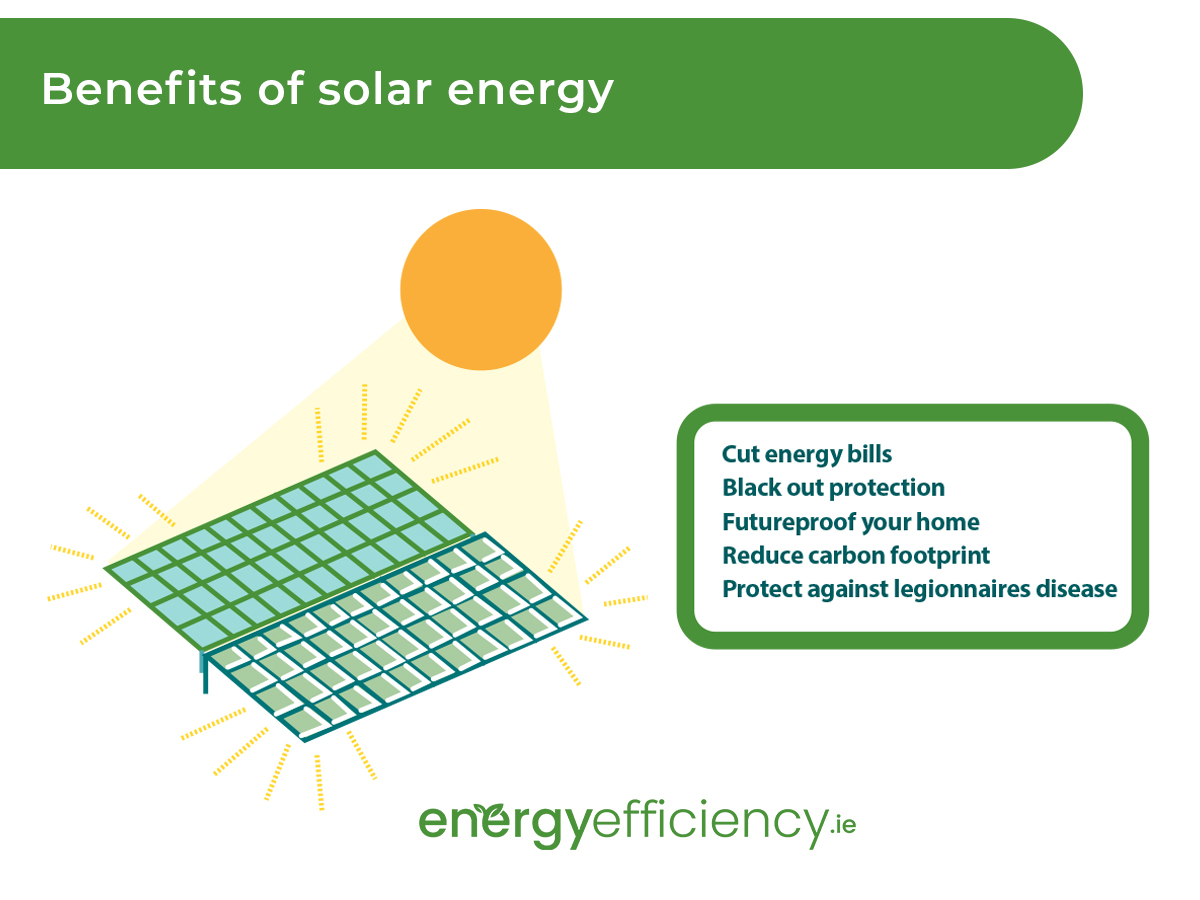
The Solar Panel Installation Process
As well as very little maintenance work being required for 25+ years, the solar installation process itself is fairly straightforward and pain-free.
